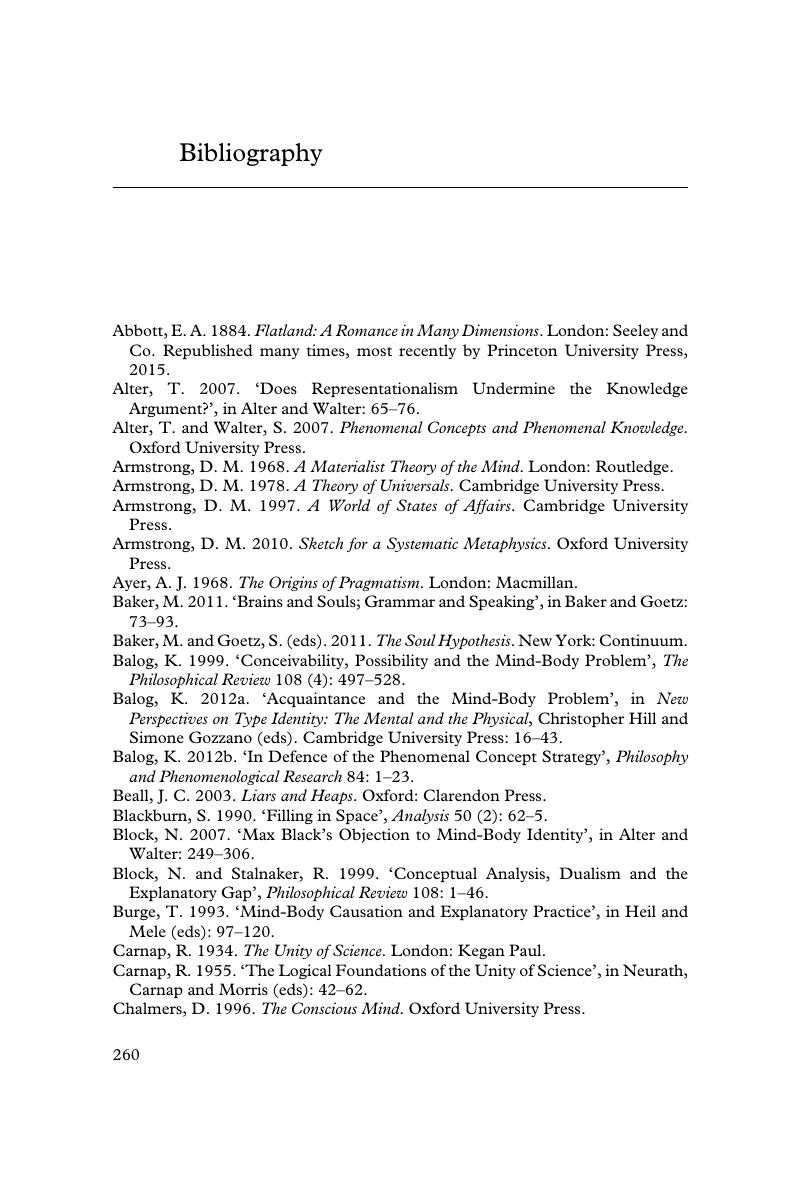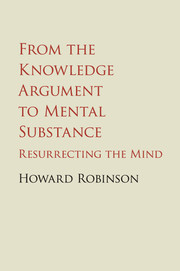Book contents
- From the Knowledge Argument to Mental Substance
- From the Knowledge Argument to Mental Substance
- Copyright page
- Dedication
- Contents
- Preface
- Book part
- Part I The power of the knowledge argument
- Part II Why physicalism entails epiphenomenalism
- Part III Arguments for mental substance
- Bibliography
- Index
- References
Bibliography
Published online by Cambridge University Press: 05 February 2016
- From the Knowledge Argument to Mental Substance
- From the Knowledge Argument to Mental Substance
- Copyright page
- Dedication
- Contents
- Preface
- Book part
- Part I The power of the knowledge argument
- Part II Why physicalism entails epiphenomenalism
- Part III Arguments for mental substance
- Bibliography
- Index
- References
Summary

- Type
- Chapter
- Information
- From the Knowledge Argument to Mental SubstanceResurrecting the Mind, pp. 260 - 267Publisher: Cambridge University PressPrint publication year: 2016



